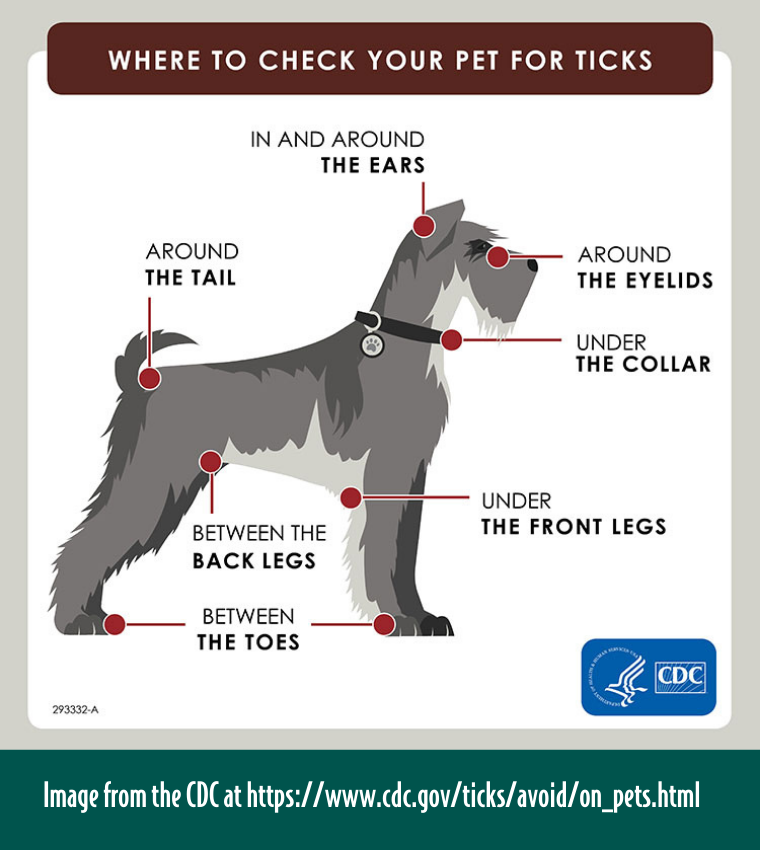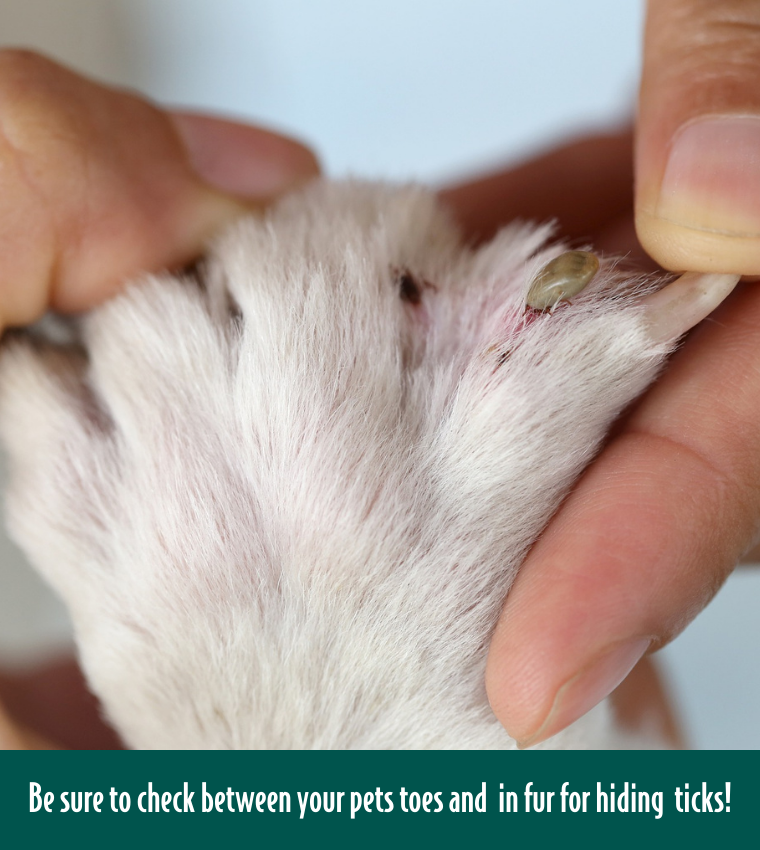While the warm weather brings out those beautiful lilac bushes, a little pest is waving in the wind ready to strike! Ticks come out at any temperature above freezing, so you can bet ticks are already out for the year. The northeast United States is home to many types of ticks, including those that may carry deadly diseases. Prevention is key to keeping pets healthy and tick-free!
How to prevent ticks
There are many types of preventatives including collars, chewables, or tablets that can help protect your pet from ticks. Be sure to do your research and discuss the options with your veterinarian to decide what is best for your pet. Make sure your pets stay up to date! A lapse in prevention can cause tick bites to occur. Many preventatives also help protect against heartworms, fleas, and internal parasites, which makes keeping your pet healthy easy.
Checking your pet for ticks after going outdoors is also important, especially if you have gone into wooded or grassy areas. Ticks like to hide in areas often unseen, so be sure to look between your pet’s toes, under and in their ears, and make sure to move their fur around to feel for any ticks elsewhere. If you find an embedded tick on yourself or your pet, it is important to make sure you get the entire tick out, by grasping as close to the skin as possible with tweezers or tick removers. This will ensure that you do not leave any mouthparts behind, which can cause infection. If you find a tick that is already fully engorged, remove it as soon as possible. The longer a tick stays in the body, the more likely they are to transmit disease.

What disease can you get from tick bites?
A common tick-borne disease found within our area that can affect both animals AND people is Lyme disease. Lyme disease is caused by the bacterium Borrelia burgdorferi. Lyme can cause fever, headaches, and fatigue and as it progresses can cause joint pain and issues within the heart or nervous system. Luckily, antibiotics can be used to resolve Lyme disease after a diagnosis. If you believe your pet has symptoms of Lyme disease, contact your veterinarian as there are simple blood tests to check for tick-borne diseases.

To find out information about ticks, tick-borne diseases, and more, you can look through the CDC’s website, at cdc.gov, for lots of useful information.
Did you know that our partners at Boehringer Ingelheim provide Lollypop Farm pets preventatives, Frontline for cats and Heartgard/Nexgard for dogs to keep them healthy while in our care? Learn more here.



